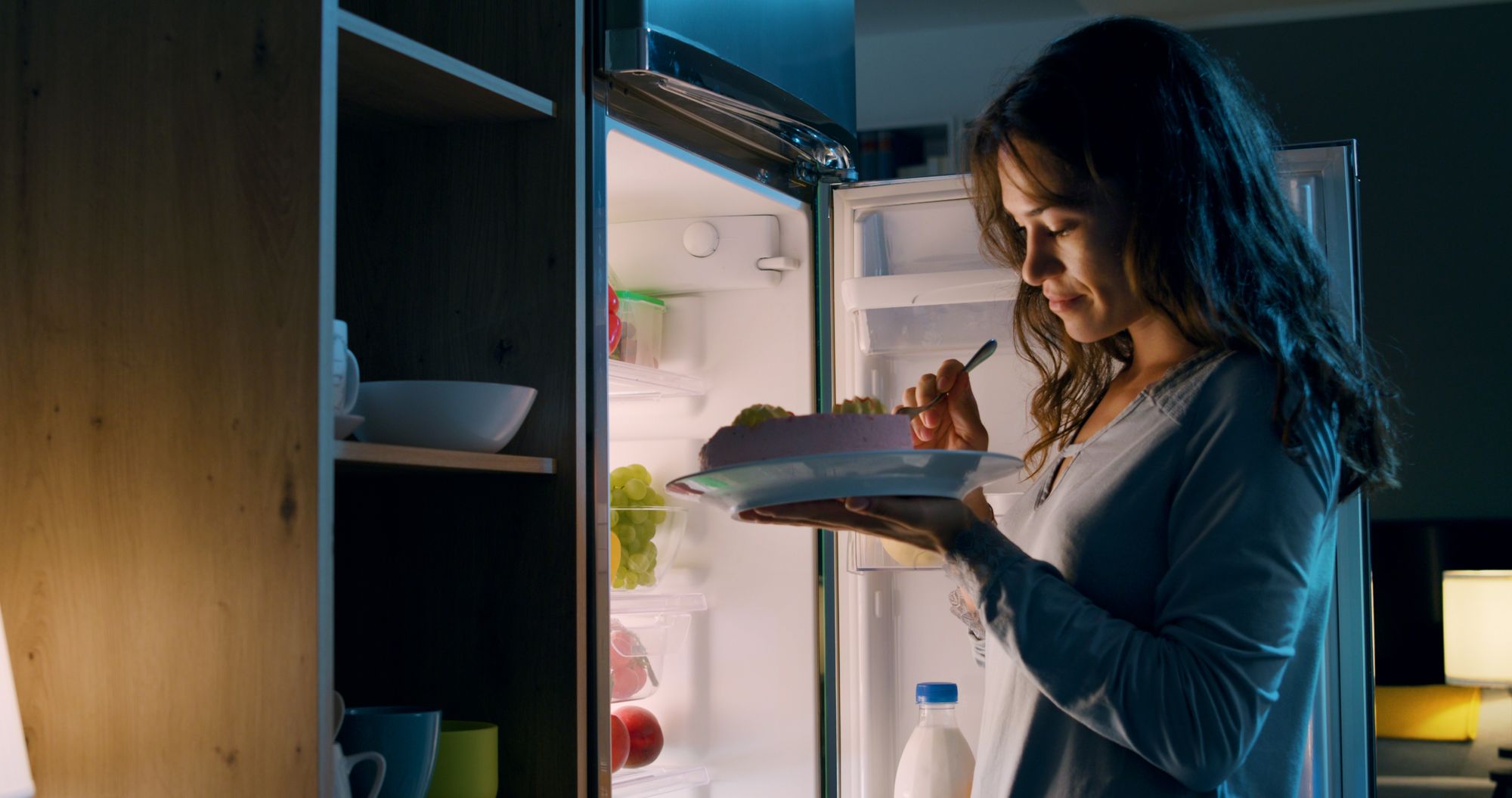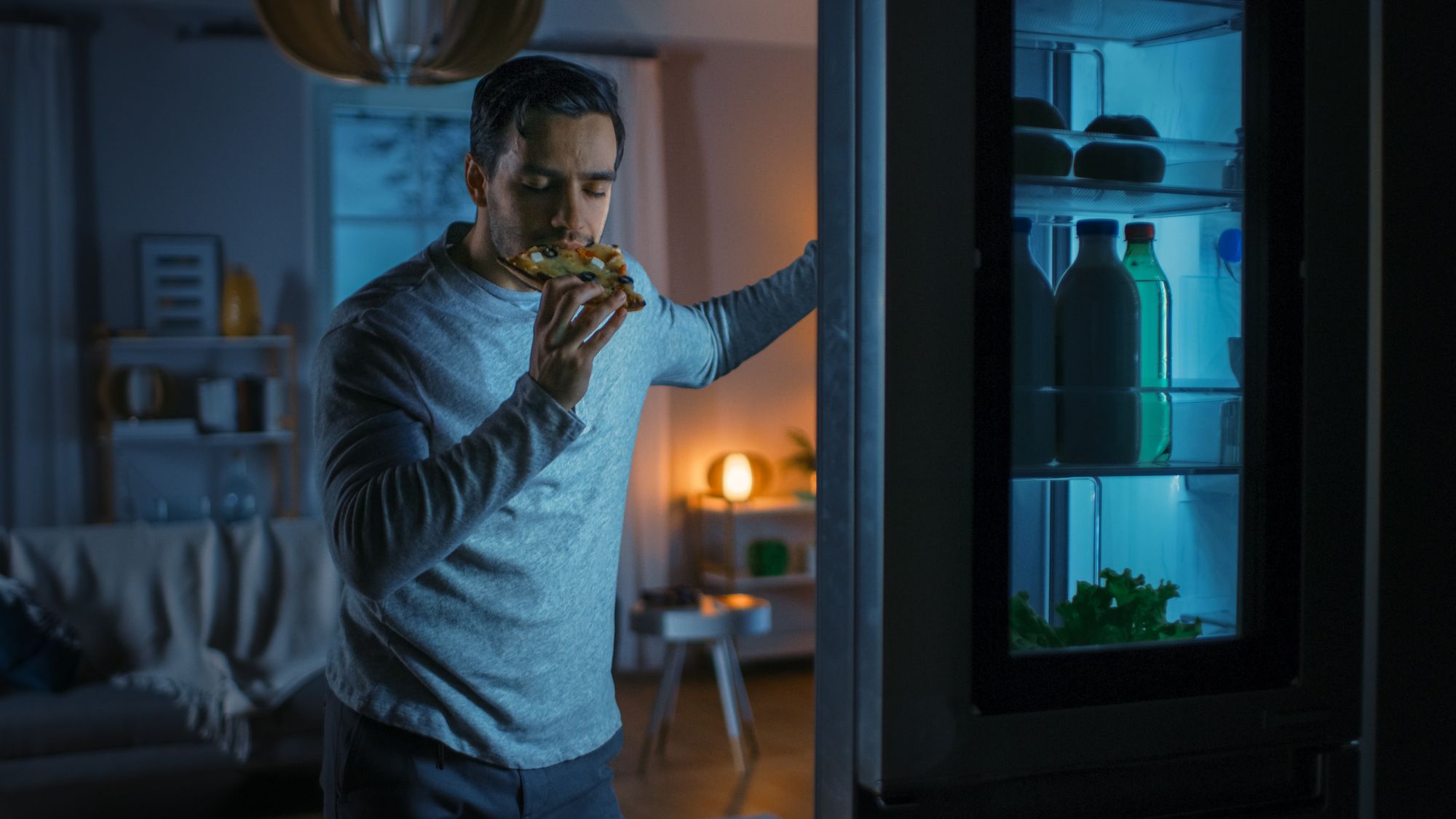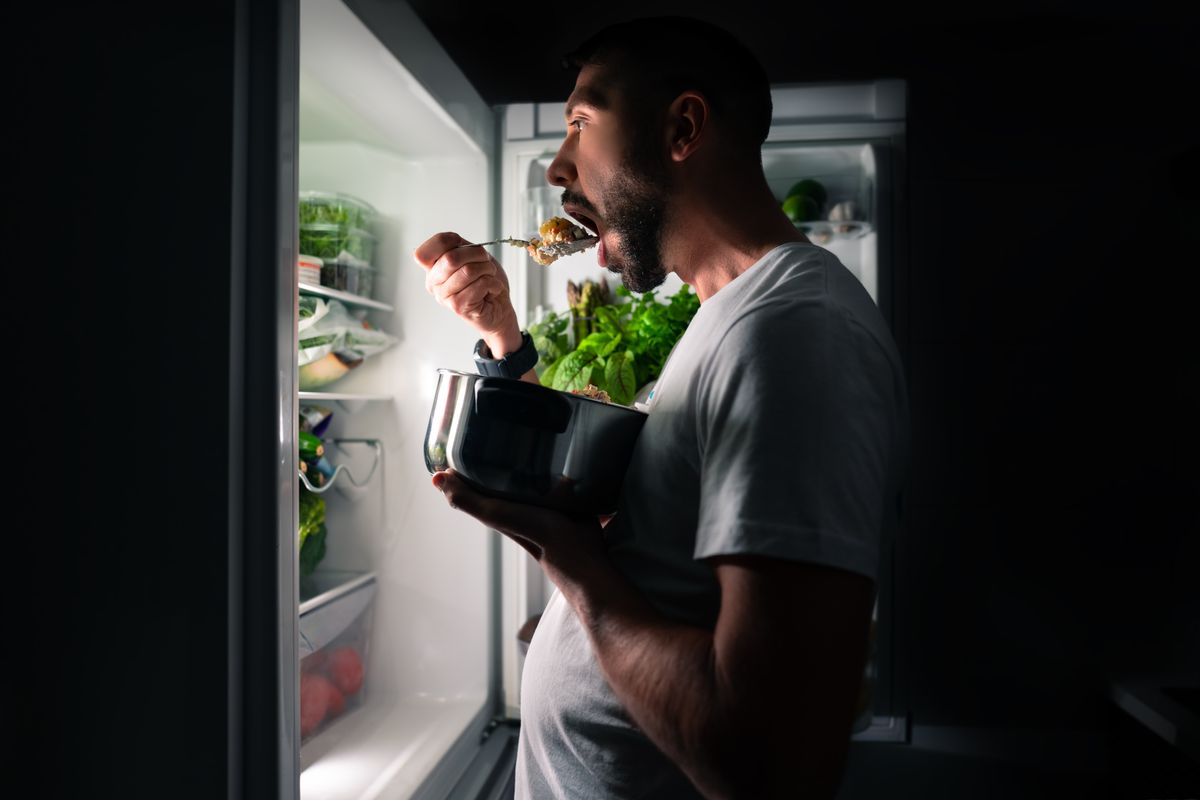Losing weight can be challenging with the abundance of information available. However, knowing what and when to eat can significantly impact your progress. In this article, Eat This, Not That! consulted Laura Burak, MS, RD, founder of GetNaked® Nutrition and author of Slim Down with Smoothies, to understand why indulging in snacking and late-night eating can impede weight loss progress. Burak provides tips on changing nighttime eating habits to help achieve weight loss goals. For more expert advice, readers can also refer to the article "You'll Never Lose Weight if You Still Do These 5 Things".
The Link Between Late-Night Eating and Weight Gain

Three Reasons Your Late-Night Snacking Habit Can Hinder Weight Loss, as Revealed by Burak
How Overconsumption of Calories Leads to Weight Gain
Snacking in the evening can be detrimental to weight loss goals, according to Burak. One reason is that consuming more calories than necessary in the evening can result in energy storage as fat. Although individuals require energy from food throughout the day, Burak notes that snacking and larger meals tend to occur in the evening, leading to an imbalance in energy use. Ultimately, the body doesn't require energy before bedtime.
How Eating Before Bedtime Can Lead to Digestive Issues and Sleep Disruption
Eating and snacking late at night can not only disrupt sleep but also result in reflux and gastrointestinal discomfort. Consuming heavy, high-fat foods in larger quantities than required can lead to digestive issues, discomfort, and heartburn, exacerbating the situation. Burak suggests that these factors may make it more challenging to lose weight.
Unhealthy, High-Calorie Foods are Commonly Consumed Late at Night
Late-night cravings often lead to high-calorie, satisfying foods, which are typically unhealthy and should be avoided when trying to lose weight, according to Burak. Fried foods, dishes with heavy cream or sauce, and desserts containing simple carbs are some examples. Consuming salty snacks like chips with accompanying dips that contain starches and fats, as well as items with caffeine, alcohol, and sugar, should also be avoided, according to the Cleveland Clinic. Dieting can be difficult if you have a sweet tooth, but it's best to avoid sugary snacks that contain refined sugar like candy bars and cookies. If you want to indulge occasionally, it's better to have your treat earlier in the day.
Preventing Weight Gain from Late-Night Snacking: Tips and Strategies

Prioritizing Daytime Meals to Prevent Late-Night Snacking and Weight Gain
To prevent late-night snacking, Burak suggests changing the way you consume meals by prioritizing daytime meals. She recommends front-loading your meals by having larger and more substantial meals earlier in the day, and eating lighter as you approach the evening hours. This strategy is effective as it ensures that you've consumed enough healthy meals during the day, reducing the urge to snack at night when relaxing on the couch or watching TV. By adopting this approach, you may be less likely to feel hungry and tempted to snack late at night.
The Importance of Allowing 10 to 12 Hours of "Digestive Rest"
Giving your body 10 to 12 hours of "digestive rest" is essential for maintaining optimal health, according to Burak. This period of not eating should begin after your last meal and continue until your first meal the following morning. For instance, if you eat your last meal at 6 p.m., you should avoid eating until 6 a.m. or later the next day, thus eliminating late-night snacking. This is an excellent rule of thumb to follow to ensure that your body has enough time to digest the food consumed during the day and allows for restorative processes to occur.

